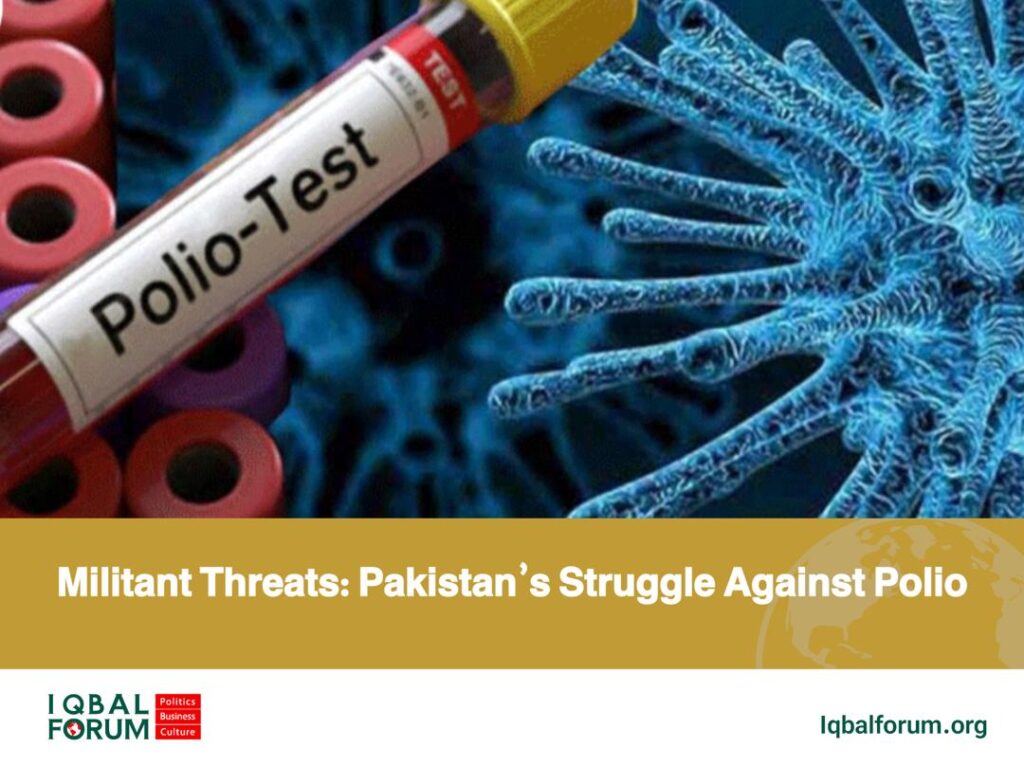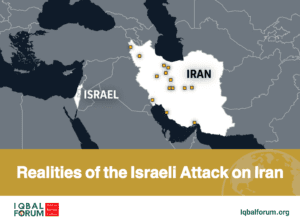Barry Buzan, one of the leading experts in security studies, famously wrote in the immediate aftermath of the end of the Cold War, “The boundaries between traditional and non-traditional security are increasingly becoming porous, where a failure in one domain can undermine the other.” Pakistan’s struggle against polio exemplifies this porous boundary between traditional and non-traditional security challenges, where militant violence and misinformation have converged to sustain one of the world’s last two polio reservoirs.
Out of the 60 environmental samples tested for polio virus in 51 districts, an alarming 25 tested positive
The other state yet to overcome the polio endemic, is the war-torn Afghanistan. However, even Afghanistan is faring better than Pakistan in terms of the number of polio cases. According to the statistics, in 2024, Pakistan reported a total of 74 cases of the crippling disease, whereas Afghanistan reported only 25. The trajectory for 2025 does not seem good for Pakistan either. Though the country reported only 5 cases untill February 2025, the broader indicators illustrate that, in the coming months, the numbers could rise. For instance, according to the Regional Reference Laboratory for Polio Eradication, located at the National Institute of Health, Islamabad, out of the 60 environmental samples tested for polio virus in 51 districts, an alarming 25 tested positive.
A pertinent question that arises here is, after many years of relentless campaigns and efforts to eradicate the virus, why has Pakistan not been able to get rid of this menace? Multiple factors explain this failure, but two of them are particularly critical in the present context, and thus warrant attention. The first is the militant threat, which has made the eradication of polio an ongoing struggle. In recent years, militants have often targeted polio workers and their police escorts, which has created a climate of fear and thus undermined the vaccination drive. To provide a glimpse of the severity of the situation, since 2012, around 112 health workers and their escorts have been killed in terrorist attacks, and more than 300 people have suffered injuries in Khyber Pakhtunkhwa province alone. In 2024 alone, 33 attacks targeted polio vaccination efforts in Pakistan, claiming the lives of 27 individuals while leaving 77 injured.
In 2024, Pakistan experienced a total of 521 terrorist attacks, out of which 495 attacks took place in KP and Balochistan
There is a direct correlation between terrorism and the growing polio cases, which is also evident from the fact that the provinces hardest hit by terrorism have also seen a growing number of polio cases in recent years. Balochistan and Khyber Pakhtunkhwa are the key examples in this regard. For instance,out of 74 cases reported in 2024, 27 were from Balochistan and 22 from KP, while the remaining were reported collectively from the rest of the country. These stats are concurrent with the dataset related to terrorist attacks in the country. In 2024, Pakistan experienced a total of 521 terrorist attacks, out of which 495 attacks took place in KP and Balochistan.
Besides militant threats, misinformation is the second key factor sustaining Polio in Pakistan. Since childhood, we have heard conspiracy theories, including claims that the vaccine is part of a Western conspiracy to make Muslim males impotent and females infertile. Past incidents, such as the fake vaccination campaign orchestrated by CIA and overseen by Dr Shakeel Afridi to find Osama bin Laden have further reinforced these narratives. The narratives become even more dangerous when endorsed by religious clerics, most of whom also believe that polio vaccines have pork or hormonal substances.
The Federal Health Minister, Mustafa Kamal, has made a startling revelation in a recent press conference recently, claiming that 44,000 families in the country have refused to vaccinate their children againt polio.
These widely popular narratives have fuelled mistrust and often led to vaccine refusal by parents for their children, even among the literate masses. The Federal Health Minister, Mustafa Kamal, has made a startling revelation in a recent press conference recently, claiming that 44,000 families in the country have refused to vaccinate their children againt polio. However, even more shocking was the revelation that nearly 90 per cent of these refusals were from the country’s largest metropolis of Karachi. From this, one can only imagine the refusal rate in the country’s peripheries, which often goes unnoticed and unreported.
In sum, the interplay of militancy, misinformation, and the poliovirus contributes to exacerbating health and human security challenges for Pakistan. It also presents a classic example of an intricate relationship between traditional and non-traditional security domains and demonstrates that to achieve comprehensive security, Pakistan must address and pay attention to both domains in an equal and parallel manner. The criticality of the threats is such that one domain cannot be prioritised at the expense of the other.





